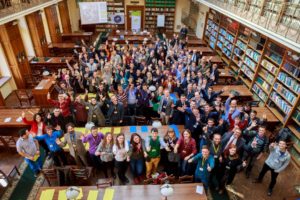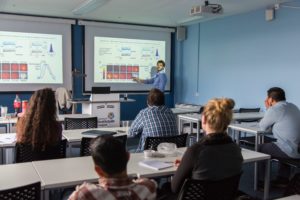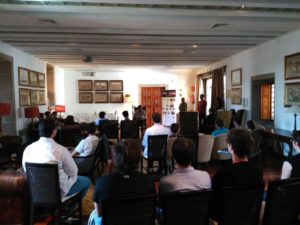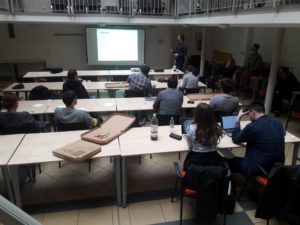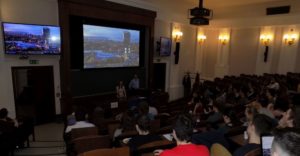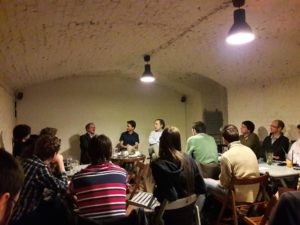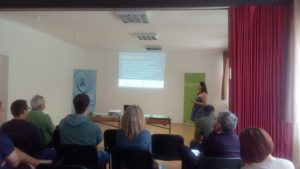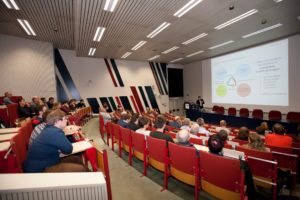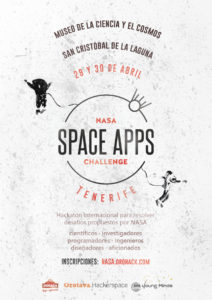 Since its inception in 2012, the International Space Apps Challenge, a part of NASA’s Earth Science Division, has become the world’s largest global hackathon, engaging thousands of citizens each year across the globe to work with NASA in building innovative solutions challenges we face on Earth and in space using open source data. Space Apps inspires local innovation communities in cities across six continents to convene, ideate and build. Diverse and collaborative teams of technologists, scientists, designers, entrepreneurs, and others work together in a 48-hour sprint to develop answers to some of the most pressing challenges facing planet Earth using NASA data. Over 25,000 citizens from 69 countries and in 187 cities around the world participated in the 2017 International Space Apps Challenge.
Since its inception in 2012, the International Space Apps Challenge, a part of NASA’s Earth Science Division, has become the world’s largest global hackathon, engaging thousands of citizens each year across the globe to work with NASA in building innovative solutions challenges we face on Earth and in space using open source data. Space Apps inspires local innovation communities in cities across six continents to convene, ideate and build. Diverse and collaborative teams of technologists, scientists, designers, entrepreneurs, and others work together in a 48-hour sprint to develop answers to some of the most pressing challenges facing planet Earth using NASA data. Over 25,000 citizens from 69 countries and in 187 cities around the world participated in the 2017 International Space Apps Challenge.
With this, we decided to host the very first NASA Space Apps Challenge in Canary Islands, with 30 participants over the course of two days of work and fun with science and data from NASA and other open repositorires.
This year, the challenge focused on a certain topic, Earth, divided in five different categories:
– The Earth and Us, which mainly consisted in combining NASA Earth Science data with other sources to obtain some short of human-environment interactions.
– Planetary Blues looked for visualizations and analysis of the hydrosphere and cryosphere in novel ways.
– Warning! Danger Ahead! was all about natural disasters through data.
– Our Ecological Neighborhood focused on studies about ecological systems.
– Ideate and Create! asked participants to use data in new creative ways as a more open challenge.
The participant where divided in three teams where each focused on one category, creating a wide variety of results. Yugarta Project focused on the display of whales migration routes and created an app to explain their journey and raise awareness. Rambo is on Fire designed a monitoring system for forest fire which mixed satellite data with drone monitoring on the field, creating a more efficient and effective system. Finally, Guardians of the Earth decided to take their own lead and develop different formulas to reduce pollution with two active systems for the reuse of combustion byproducts, mainly CO2.
Sadly, none of the projects done in this venue was able to reach the global finals. However, the participants were really pleased at the end of the event and asked for more editions in the future.
Thanks to the support of the EPS we were able to pay for food, beverage, office supplies and promotional materials. The local Science Museum of Tenerife hosted the event and Dorada donated some extra beverages.
A report and a explanatory video of each team can be found on the website of the event:
https://2017.spaceappschallenge.org/locations/tenerife/
You can find the full album of the event on Facebook:
https://www.facebook.com/Space-Apps-Tenerife-1272997179416727/

